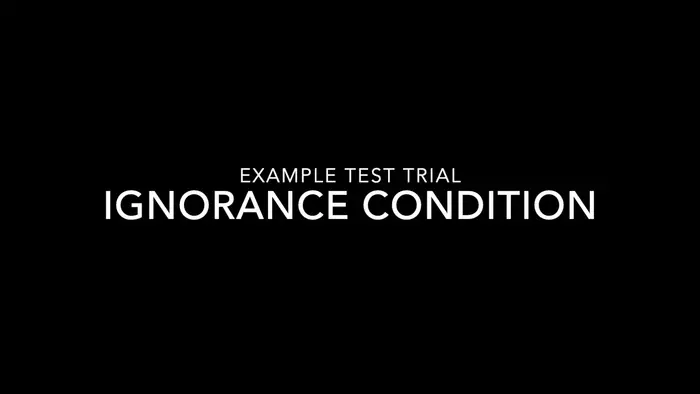Apes, particularly bonobos, have long fascinated scientists for their cognitive abilities and social intricacies. Recent research conducted by a team from Johns Hopkins University adds a remarkable dimension to our understanding of non-human primates. In a groundbreaking experiment, the researchers demonstrated that bonobos can recognize when their human partners lack knowledge and will respond accordingly, communicating in a way that reflects this understanding. This study fundamentally challenges long-standing assumptions about the uniqueness of human cognitive processes, particularly the theory of mind—the ability to attribute knowledge or beliefs to others.
The study observed three male bonobos: Nyota, Kanzi, and Teco, all residing at a research facility known as Ape Initiative. The experimental setup was designed to evaluate how these apes interacted with a human participant who varied between being aware or ignorant of the location of a hidden treat. This methodology was pivotal as it provided empirical evidence of the bonobos’ ability to not only recognize another’s ignorance but also to communicate this knowledge actively. Researchers structured the experiment in a way that clearly delineated the bonobos’ responses based on the human’s awareness of the treat’s location.
During the experimental trials, the bonobos were positioned across a table from a human participant who placed a treat underneath one of three cups. In this controlled setting, the human could either see which cup concealed the treat or be left completely unaware. The critical question was whether the bonobos would alter their behavior depending on their human partner’s state of knowledge. This approach mirrored similar findings in the wild, suggesting a continuity of cognitive capability across different contexts and environments.
What is particularly striking is the bonobos’ deliberate choice to communicate. The apes were observed to point at the correct cup significantly more often when they were aware that the human did not know where the treat was hidden. Their response was not only faster but also more pronounced. One bonobo named Kanzi displayed particularly insistent behavior, tapping or pointing repeatedly when the human exhibited ignorance. This highlights a level of intentionality that suggests a sophisticated understanding of social dynamics and the mental states of others.
The implications of this study extend beyond mere curiosity about animal behavior. This research sheds light on the evolutionary roots of social cognition. The ability to sense another individual’s lack of knowledge—an essential component of cooperative communication—was previously thought to be unique to humans. However, the findings by Chris Krupenye, an assistant professor at Johns Hopkins, suggest that such abilities could be embedded within our shared evolutionary history with other apes, indicating a rich tapestry of cognitive capabilities that spans millions of years.
Moreover, the results compel us to reconsider the boundaries of intellect in other animal species. If bonobos can apprehend a partner’s ignorance and act upon it, what other cognitive skills might they possess that have yet to be uncovered? This revelation paves the way for further research not only into bonobos but into primate cognition as a whole, challenging longstanding biases within the scientific community regarding animal intelligence.
The framework of the experiment reveals much about the bonobo’s mental landscape. It could represent an understanding of two conflicting viewpoints simultaneously: the bonobo knows where the food is located while simultaneously recognizing that their human partner lacks that knowledge. Krupenye highlighted this dual cognitive processing, comparing it to human interactions where individuals navigate complex social situations.
As the researchers continue to delve into the nuances of bonobo communication and cognition, the focus will shift towards understanding the motivations that drive these behaviors. A compelling question remains: are bonobos merely trying to convey information, or are they also endeavoring to alter their partner’s mental state? This distinction is critical in further unraveling the layers of social intelligence in non-human species.
The excitement surrounding the study is palpable; it represents a confluence of evolutionary biology, psychology, and communication studies. The ancient roots of cognition that Krupenye and his team are unveiling have profound ramifications for fields as diverse as anthropology, linguistics, and even behavioral economics. By broadening our perspective on animal intelligence, we can gain insights into the evolutionary mechanisms that have shaped the nature of communication and cooperation.
In summary, the work conducted by Johns Hopkins University’s Social and Cognitive Origins Group represents a paradigm shift in our understanding of animal cognition. The capacity of bonobos to recognize ignorance and respond with targeted communication not only deepens our comprehension of ape behavior but also offers a glimpse into the evolution of human-like cognitive traits. This emerging narrative suggests that social and communicative complexities trace back to a shared lineage of primates, inviting us to reexamine the definitions of intelligence and communication across species.
The investigation continues, with further research poised to explore the cognitive motivations behind bonobos’ behavior. As scientists learn more about these animals, they will not only contribute to our understanding of primate behavior but also enrich our perspective on the interconnected webs of intelligence that bind the primate family tree. The story of bonobos and their capacity for social cognition is still unfolding, hinting at the vast and intriguing potential of animal minds.
Subject of Research: Bonobo cognitive abilities and social communication
Article Title: Bonobos Point More For Ignorant Than Knowledgeable Social Partners
News Publication Date: [Date not provided in the content]
Web References: [N/A]
References: [N/A]
Image Credits: Credit: Johns Hopkins University
Keywords: Animal psychology, Animal communication, Bonobo cognition, Non-human primate research, Theory of mind
Tags: animal awareness of knowledgebonobos cognitive abilitiescognitive psychology in apesgroundbreaking ape experimentshuman-animal interaction studiesimplications of ape cognition researchJohns Hopkins University researchnon-human primate communicationrecognition of ignorance in animalssocial intelligence in bonobostheory of mind in primatesunderstanding primate social behavior





